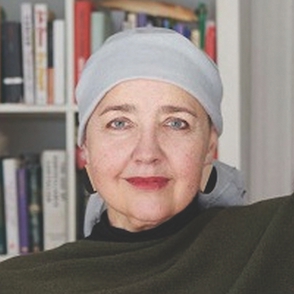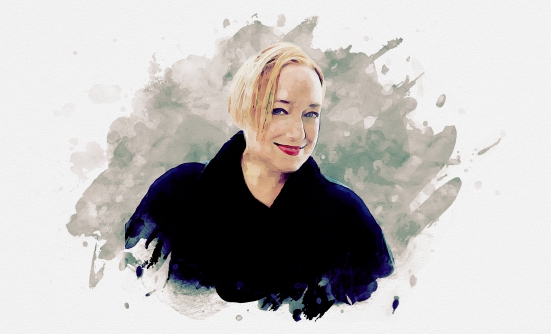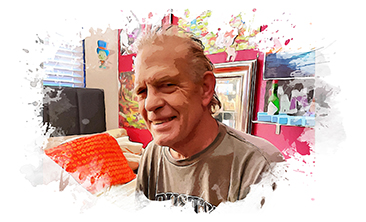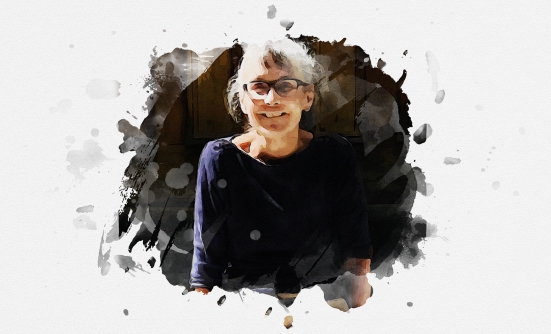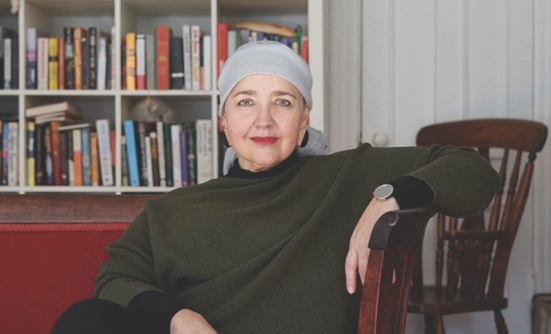
Unwilling to wait for the lumbering wheels of healthcare reform to move in her direction, Jessica Morris, who was diagnosed with glioblastoma (an aggressive type of brain cancer), took matters into her own hands.
With an initial prognosis in 2016 of just 6 months to live, Jessica didn’t have time to wait. She wanted to move the needle—immediately. In addition to influencing her treatment choices and increasing her options, she also wanted to accelerate the progress in research and development of new treatments. So she founded the nonprofit organization OurBrainBank (https://OurBrainBank.org), and until very recently had been leading a movement to make patients the center of healthcare.
Jessica’s Story
I was blindsided by my glioblastoma diagnosis. I was hiking in upstate New York with friends, a happily married mother of 3 children, a great career, a lovely marriage. Suddenly I felt tired, then I couldn’t speak. I had a full-blown seizure. Two days later, I had brain surgery. Two weeks later, I was given my diagnosis, with a median (average) survival of 14 months, and a less than 5% chance of being alive in 5 years.
Frustrated by the paucity of treatment options, scarce research, and terrifying life expectancy, I enlisted other patients, neuro-oncologists, and tech experts to create the nonprofit organization OurBrainBank.
In 2018, I won the Hero of Hope Patient Award, an annual award given by the Academy of Oncology Nurse & Patient Navigators and CONQUER magazine. (For more information about Jessica’s life, see https://Ourbrainbank.org/jessica.)
Jessica lived with glioblastoma for more than 5 years. Sadly, she died on June 8, 2021.
The board and staff of OurBrainBank are committed to building on the movement she began.
Jessica’s obituary in the New York Times includes the following statement from Fabio M. Iwamoto, MD, Deputy Head of Neuro-Oncology at Columbia University in New York: “She knew then that something needed to be done, and that patients like her had enormous power. Despite being busy with the tumor treatments and looking after three children, Jessica found the time and energy to be a pioneering advocate of a new contract between the medical profession and the patient community.”1
Glioblastoma
Glioblastoma is the fastest growing form of glioma, a type of tumor originating in the brain, and is extremely difficult to treat, with the average survival measured in months, not years. Patients with glioblastoma don’t have time to wait.
For the Glioblastoma Awareness Day in 2019, OurBrainBank conducted a survey of people affected by glioblastoma to collect patient information to understand the challenges related to this brain cancer.2
As one respondent to our survey wrote: “Ted Kennedy, Beau Biden, and John McCain had all the resources in the world and lost their fight with glioblastoma. Patients and caregivers deserve for such a challenging diagnosis to be fast tracked, and access to the most cutting-edge options and treatment information presented to all patients at the time of surgery and diagnosis.”3
A Patient Revolution
As healthcare systems around the world struggle to cope with the immense pressures of the COVID-19 crisis, it may be time to talk about a healthcare revolution, with patients as its standard bearers.
The term “patient-centric” has been popular in healthcare circles over the past few years. Patients are increasingly becoming well-educated, engaged, and empowered regarding their care. They are healthcare consumers, demanding their money’s worth.
Patients used to listen to their doctors—now they converse with them. In fact, some patients march into their appointments armed with data, asking many questions. Many patients are no longer passive recipients of healthcare, but rather active participants.
It’s time for research and development of new treatments to revolve around patients as well. Pharmaceutical companies need to address the issues that truly matter to patients and their caregivers, as they live with illness; this can go beyond the standard measurable clinical outcomes of drug regimens.
There are serious gaps between what researchers focus on, and what patients deem important. Quality of life may be more important than quantity of life.
Patient-Reported Outcomes
Real-world data, collected directly from patients (and called “patient-reported outcomes”), should be leveraged to enhance outcomes for the individual patient, and collectively. The value of these patient-reported outcomes is becoming increasingly recognized, and researchers, drug companies, and even regulatory agencies are looking for ways to incorporate this type of information into the process of developing new treatments.
The pilot study approved by the Institutional Review Board of OurBrainBank was published in the Journal of Clinical Oncology and was presented at the 2019 Annual Meeting of the American Society of Clinical Oncology.4 This study provides a novel way to collect patient information—designed for, by, and with patients with glioblastoma.
The study uses smartphones with an app used by patients and caregivers to track the patient’s symptoms and other health indicators, such as mood, diet, exercise, and sleep. The app includes games to test memory and concentration, as well as alerts to remind users to take their medication, drink water, or exercise.4
At a time when everything seems out of control, this app enables patients to wrest some control back, and participate directly in their treatment. The few minutes a day patients spend focused on how they feel, physically and emotionally, can have an impact on their overall connection with their health and well-being.
Being able to review changes over time can also keep patients engaged in their treatment, which, in turn, makes them more likely to adhere to it. Beyond the physiological and psychological benefits the study can provide for individual patients, the greatest benefit comes from the collective use of the study results.
The overall anonymized data set, which is donated to medical researchers as part of a clinical trial, could provide invaluable insight into symptom diversity, disease progression, and treatment outcomes. More than 700 patients and their caregivers have taken part so far in this study, and neuro-oncologists are excited about its potential, as evident in the following quotations.
“Capturing patient data and fusing that with our traditional methods of monitoring glioblastoma will give us much-needed insight into glioblastoma, in turn leading to new research and new treatments,” said Dr. Iwamoto.
“This study has the potential to help us understand glioblastoma patients’ needs and experiences in a much more sophisticated way than we are currently able to,” said Florien Boele, PhD, MSc, Associate Professor of Medical Psychology, University of Leeds Institute of Medical Research and Leeds Institute of Health Sciences, United Kingdom.
“I hope that OurBrainBank can give us insights which will ultimately enable us to improve the care given to patients,” Dr. Boele added.
A Movement with a Mission
OurBrainBank has grown into a vibrant international community—a movement with a mission to move glioblastoma from terminal to treatable cancer. And the movement is leading the charge for patients with cancer everywhere.
The Glioblastoma Bill of Rights was released on July 22, 2020, which is the Glioblastoma Awareness Day. The Glioblastoma Bill of Rights states the patient’s right to timely access to genomic testing, clinical trials, and experimental treatments, second opinions, and specialist care, regardless of the patient’s financial circumstances.5
OurBrainBank, together with fellow advocates, are asking lawmakers and the medical community to increase funding for brain cancer research, and to review the current standard of care, which is failing many patients.
References
- Genzilnger N. Jessica Morris, whose brain cancer was her cause, dies at 57. New York Times. June 9, 2021. https://nyti.ms/3ixZPKG.
- OurBrainBank. GBM Patient Action Survey #GBMDay. https://bit.ly/3iCpqSu.
- OurBrainBank. Survey: Glioblastoma Awareness Day—Patient Action Charter #GMBDay. https://bit.ly/2TphoE2.
- Morris J, Hellman B, Duprey K, et al. Study of a smartphone-based symptom assessment (OurBrainBank) for subjects with glioblastomas. Journal of Clinical Oncology. 2019;37(15_suppl):Abstract e13574. https://ascopubs.org/doi/abs/10.1200/JCO.2019.37.15_suppl.e13574.
- OurBrainBank. Glioblastoma Bill of Rights. July 22, 2020. https://ourbrainbank.org/2020/06/10/rights/.
Key Points
- Glioblastoma is the fastest growing form of glioma, a tumor originating in the brain, and it is extremely difficult to treat
- The average survival of patients with glioblastoma is measured in months, not years
- “Ted Kennedy, Beau Biden, and John McCain had all the resources in the world and lost their fight with glioblastoma”
- There are serious gaps between what healthcare researchers focus on, and what patients find important
- Patient-reported outcomes should be leveraged in the development of new glioblastoma treatments





